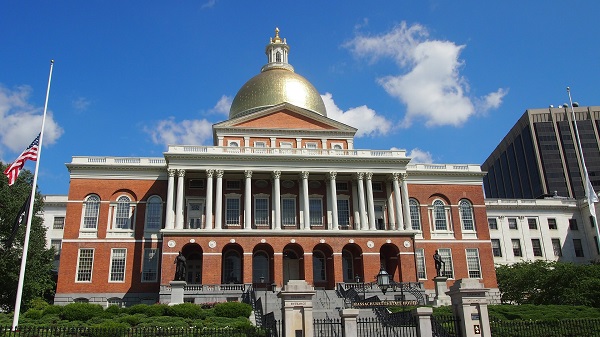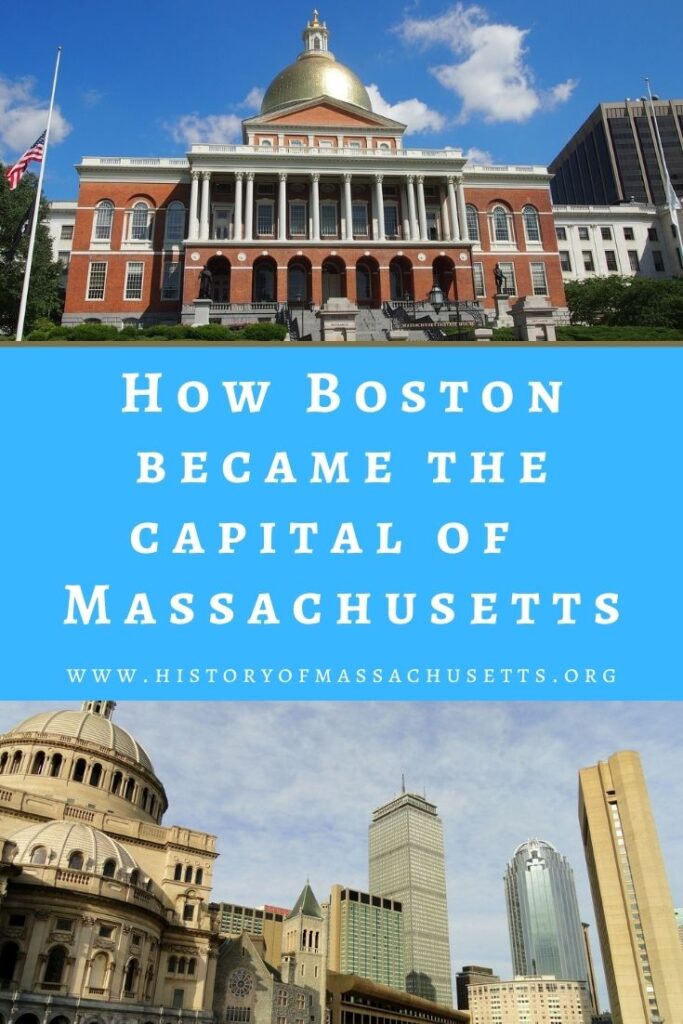Boston is the capital city of Massachusetts. Boston became the capital of the Massachusetts Bay Colony during the 17th century and has remained the capital ever since.
When the Massachusetts Bay Colony was first settled in 1630, some of the colonists originally planned to make Cambridge, which was known as Newtown at the time, the capital of the colony.
In 1630, Deputy Governor Thomas Dudley founded Newtown and tried to persuade the other colonists to settle there in the hopes that the town would eventually grow large enough to become the capital.
At the end of 1630, the Massachusetts General Court agreed that Newtown should become the colony’s central fortified town and the magistrates made plans to settle there.
Governor John Winthrop even began to construct his house in Newtown but then suddenly changed his mind and declared that Boston, which was located at the sea, had more advantages as a commercial and political capital.
Winthrop ordered his workers to remove the framing of his house and transport it to Boston. The other magistrates followed Winthrop’s lead and settled in Boston instead.
On October 19, 1630, when the Great and General Court of the Bay Company decided to hold a meeting about establishing the new government for the Massachusetts Bay Colony, it chose Boston as the place to hold the meeting, which also suggests it was already becoming the unofficial capital of the colony.
The only formal action declaring Boston the capital of the colony happened on October 3, 1632, when the Court of Assistants declared “It is thought by general consent that Boston is the fittest for public meetings of any place in the Bay.”
An order passed by the Massachusetts General Court on May 23, 1655, recognized that Boston had become the capital when it required that the governor of the colony must reside in or near Boston while governing.
When the Dominion of New England was established in 1686, which was a merging of all of the New England colonies into one large royal colony, Boston suddenly became the capital city of all of New England. The dominion was eventually overthrown though during the Boston Revolt in 1689.
In 1691, the British government merged Plymouth Colony, and its capital city of Plymouth, Mass, with the Massachusetts Bay Colony to form the Province of Massachusetts Bay, a large royal colony run by the British crown, and Boston became the capital of all of Massachusetts.
During and after the Revolutionary War in the 18th century, a total of 11 states, including New Hampshire, Rhode Island, Connecticut, New York, New Jersey, Pennsylvania, Delaware, Maryland, Virginia, North Carolina, South Carolina, Georgia, relocated their state capitals further inland, for a number of reasons. Massachusetts and Maryland were the only states whose state capitals remained where they were.
As a result, Boston is currently the only state capital in the United States with an ocean coastline. This is due to its close proximity to the ocean as well as to the unique geography of Boston.
Boston used to practically be an island when it was first settled and only had a narrow land bridge, called Boston Neck, connecting it to the mainland. In the 19th century, the water surrounding this land bridge was filled in, making Boston much larger in size yet it still retains its expansive coastline.
Pin it for later:
Sources:
Avery, Elroy McKendree and William Abbott. A History of the United States and Its People. Vol II, Barrows Brothers Company, 1905.
Hartwell, Edward M. Boston and Its Story: 1630 – 1915. Boston: Printing Department, 1916.
Rohrer, S. Scott. Wandering Souls: Protestant Migrations in America, 1630 – 1865. University of North Carolina Press, 2010.
Boston Massachusetts: America’s City of Firsts. Embassy of the United States of America, Aug, 2013, ar.usembassy.gov/wp-content/uploads/sites/26/2016/06/Boston_English.pdf
“The 21 New England Colonial and State Capitals.” New England Historical Society, newenglandhistoricalsociety.com/the-21-new-england-capitals/
“Brief History of Cambridge, Mass.” Cambridge Historical Society, cambridgema.gov/historic/cambridgehistory


